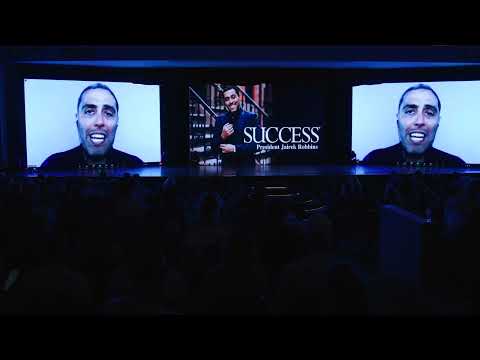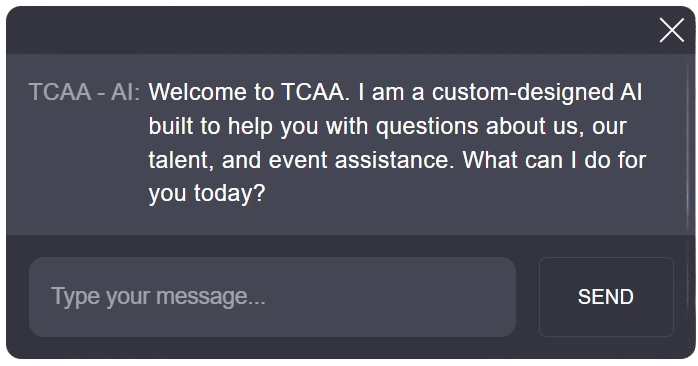Understanding the pivotal role of a speaker keynote event is like figuring out who’s leading the band at a concert. They’re not just another musician; they’re the main act, the one who sets the tune and tempo for everything that follows. With Talent Concierge Artists Agency (TCAA) at the helm, mastering the art of the keynote speech in 2024 has become an essential skill for anyone stepping into the spotlight of major events.
| Attribute | Details |
|---|---|
| Agency | Talent Concierge Artists Agency (TCAA) |
| Average Hourly Pay (2024) | $24.47 |
| Keynote Speaker Examples | Zahra Al-Harazi, Jeff Havens, R. Michael Anderson |
| Technologies Used | Virtual Reality, Augmented Reality |
| Keynote Speech Themes | Engagement, Motivation, Education |
Understanding the Role of a Keynote Speaker in Major Events
Keynote speakers are the linchpins of any significant event. They do more than just talk; they set the scene, dictating the energy and encompassing the theme of the entire gathering. Think of them as the headliners of a festival, where guest speakers are like the supporting acts, elaborating on the themes introduced by the star of the show.
The importance of a keynote speaker’s position cannot be understated. They are often the first glimpse attendees have into the spirit and overarching structure of an event. This role demands not only expertise and personal experience but a charismatic delivery that can captivate an audience right off the bat. Imagine walking into an event and being immediately gripped by the speaker’s presence and message—that’s the kind of impact a top-notch keynote speaker has.

Effective Strategies for Choosing the Right Keynote Speaker
Finding the perfect keynote speaker for your event is a bit like casting the lead in a blockbuster movie. You need someone who can draw a crowd and deliver a performance that resonates. The best strategies? Tap into a speakers bureau, lean on your personal network, reflect on past event successes, and don’t underestimate the power of a good old Google search.
The characteristics of a great keynote speaker are clear: engaging, dynamic, knowledgeable, and experienced. They must be able to hold the room, inspire the audience, and impart wisdom that aligns with the event’s theme. Just as important is their ability to adapt their message to the energy of the room, ensuring their words aren’t just heard but felt.

The Art and Science of Delivering a Compelling Keynote Speech
Delivering a compelling keynote speech is an art form in itself, blending storytelling, expert knowledge, and personal anecdotes into a seamless narrative that speaks directly to the heart of the audience. Speakers like John Folley, Fred Lee, and Jairek Robbins exemplify this approach, using their unique experiences to forge a genuine connection with their listeners.
The key to a memorable keynote lies in its ability to resonate on a personal level with each attendee, making the abstract themes of a conference feel urgent and tangible. Whether it’s through captivating stories or startling truths, a well-delivered keynote not only informs but also transforms its audience.

Financial and Professional Insights into the Keynote Speaking Industry
As of April 2024, the keynote speaking industry has seen a dynamic shift in both demand and compensation, with the best earning thousands an hour. Yet, what truly makes or breaks a keynote speaker’s career is their ability to remain relevant and compelling over time.
Understanding the economic landscape of this industry is crucial for upcoming speakers. It’s not just about commanding high fees but also about navigating the nuances of market demand and audience expectations. This financial acumen will be indispensable as speakers plan their career trajectories in an ever-evolving professional environment.

Leveraging Technology and Innovation in Keynote Speeches
In today’s digital age, the integration of technology in keynote speeches cannot be overlooked. Innovations like virtual reality and augmented reality are transforming the traditional keynote delivery, allowing speakers to offer immersive experiences that engage the audience in unprecedented ways.
The use of digital tools extends beyond visual aids, encompassing interactive elements that make speeches more dynamic and impactful. As we move further into 2024, the speakers who harness these technologies effectively are the ones who will stand out on the digital and physical stages alike.

Mastering Keynote Speaking with TCAA: A Blueprint for Success
With the backing of TCAA, keynote speakers gain access to an arsenal of resources aimed at honing their skills and enhancing their performance. TCAA not only helps manage the logistical aspects of speaking engagements but also provides strategic advice on personal branding, audience engagement, and content delivery.
This comprehensive support system ensures that TCAA’s speakers are not just prepared but primed to deliver powerful performances that resonate with both the themes and the goals of major events.
Navigating the Future of Keynote Speaking
Looking ahead, the landscape of keynote speaking is ripe for innovation. Emerging technologies and changing audience expectations are reshaping what it means to deliver a keynote. The speakers who thrive will be those who can adapt to these changes, continuously refining their craft and approach to align with the evolving demands of audiences and event organizers.
In sum, mastering the art of keynote speaking with TCAA in 2024 means embracing change, leveraging new technologies, and continuously seeking to connect with your audience in meaningful ways. It’s about being more than just a speaker; it’s about being a memorable, impactful presence that defines an event.

FAQs about Keynote Speakers
What is the difference between a speaker and a keynote speaker?
The main difference between a speaker and a keynote speaker lies in the role they play at an event. A speaker can address any specific topic at any point in the event. In contrast, a keynote speaker is typically the primary speaker who introduces the main theme and sets the tone for the entire event, often speaking at the beginning to establish the event’s framework.
Why is it called a keynote speaker?
The term “keynote” originates from the world of music, referring to the fundamental note that establishes the key in which a musical composition is played. Similarly, a keynote speaker sets the fundamental tone or theme for a conference or event, aligning their speech to define and direct the event’s overall atmosphere and direction.
What is in a keynote speech?
A keynote speech typically includes a strong central theme that is relevant to the overarching topic of the event. It combines insights, expertise, and motivational elements designed to engage the audience and provoke thought. The content often includes storytelling, compelling data, and calls to action, aiming to leave a lasting impact on the attendees.
How do I get a keynote speaker?
To get a keynote speaker, you can start by identifying potential candidates who are experts in the field of your event’s topic. You can consult a speakers bureau, leverage recommendations from your professional network, review past events for standout speakers, or conduct an online search for renowned speakers with expertise in your event’s subject area.


















